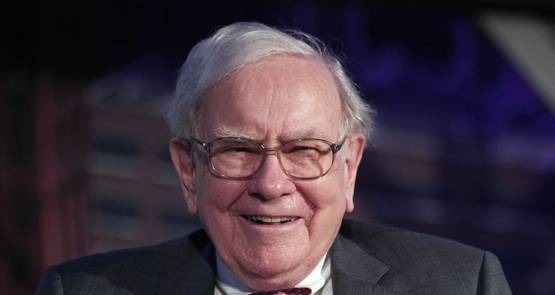
Play it again, Gordon. Yesterday Woolies chairman Gordon Cairns acknowledged the retailer’s myriad problems, admitted the mistakes, promised to do better, outlined some priorities and then told the audience the company had to move on. But Cairns never quite managed to explain how a leading company like Woolies stumbled off the rails and made so many value-destroying decisions. For Woolworths shareholders, the search for answers is well worth pursuing because the company has had such a long and fabulous track record of good management, operational excellence, sales growth and earnings (and fat dividends for shareholder). How it managed to lose the plot and its fine record without anyone at management or board level asking or challenging what was happening is a big, big mystery. — Glenn Dyer
Whack, thwack, gone? The ACCC has whacked proposals from Bermuda/US/Canadian black-box investor Brookfield Infrastructure in its $9 billion bid for ports and rail group Asciano. The ACCC’s rejection was as comprehensive “go away”, as you could imagine — the commission told Brookfield and its advisers not even think about trying to have a chat.
ACCC chairman Rod Sims said in October the regulator was worried that Brookfield would “favour” Asciano’s Pacific National rail haulage businesses in Western Australia (in grain) and Queensland (coal) if it were allowed to acquire the company. The ACCC sees Brookfield, which owns the rail, not being able to separate or differentiate between its ownership of the rails and the trains that will run on them. Grain farmers in WA have already pointed out that problem to the ACCC in earlier submissions. The ACCC will decide on the Brookfield bid by December 17, which is when rival bidder Qube (chaired by Chris Corrigan) says it will be prepared to lodge a bid around $9.25 a share. Qube has combined with partners from Canada and UK/US, but because it doesn’t own the rail tracks, won’t have the same concern for the ACCC. But Qube’s existing position in ports might be a concern. — Glenn Dyer
Question of the mind. Aged billionaires around the world will be looking on nervously. From 86-year-old Bruce Gordon (Win TV network in Australia), to Rupert Murdoch, 84 (News Corp and 21st Century Fox), to 85-year-old Warren Buffett (Berkshire Hathaway), all will be watching the sudden development of a mental competency case involving 92-year-old Sumner Redstone, who controls US media giants Viacom and CBS. According to US media, more and more people reckon Sumner might not be up to the task anymore.
There have been months of speculation that the man who controls 80% of the voting shares in CBS and Viacom, worth US$45 billion, is not all there. He failed to front an analysts’ briefing earlier this year, missed annual meetings of CBS and Viacom. There have also been reports he refuses to leave his house and communicates infrequently with executives. Redstone has set up a seven-person trust to handle his shareholdings after he dies. But the concerns (and weak results) have knocked Viacom shares 30% lower this year, while CBS is off just 6% because it is run by better managers. — Glenn Dyer
Turkeys’ bad day out. Finally, it’s turkey murder day in the US when Americans feast on birds of a questionable nutritional value to celebrate the day when native Americans greeted and fed white English pilgrims to their country. Naturally, being Americans, the focus has been on the cost of the meals, which has now been consumed. According to numerous media reports and experts, this was the most expensive Thanksgiving of all time because the cost of turkey meat has soared due to the lingering impact of the avian flu outbreak in the US chicken and turkey flocks last year. The American Farm Bureau says the cost of a 16-pound turkey this year (that’s around 7 kilos) has risen to US$23.04 from US$21.65 last year. So, given the record level for the bird, the rest of the meal for 10 people will be US$50.11, up from US$49.41 last year. And by the way, Marketwatch.com has pointed out that the US Consumer Reports group has found that:
“… antibiotic resistant bacteria, called superbugs, are common in our meat supply, particularly in turkey meat. Over three years, the study tested four types of meat for bacterial contamination and found superbugs in all of them. By far, the turkey samples were the most likely to contain superbugs: 83% of the samples taken from conventionally raised turkey meat contained superbugs, and 80% of the sustainably raised samples.”
Now for the turkey trot? — Glenn Dyer







Considering what passes for food in the benighted States, the trots would be the least of ones worries.